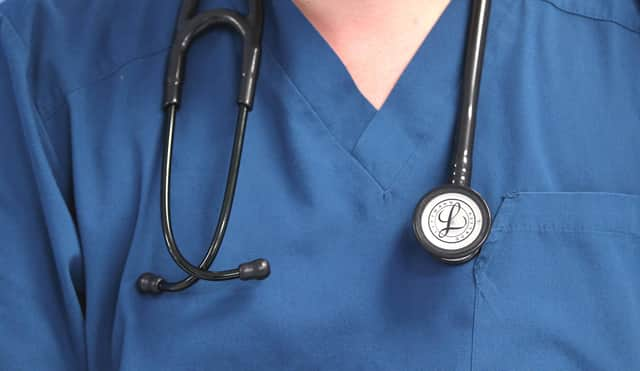Covid disruption sees far fewer planned appointments offered to North Middlesex University Hospital NHS Trust patients


Far fewer planned hospital appointments were offered to North Middlesex University Hospital NHS Trust patients last year amid disruption caused by the coronavirus outbreak, figures reveal.
Health think tank the Nuffield Trust has warned that cancellations and fewer referrals during the pandemic mean people with treatable conditions may be getting worse.
Advertisement
Hide AdAdvertisement
Hide AdNHS Digital data shows 466,140 outpatient appointments were booked at North Middlesex University Hospital NHS Trust in the year to March – a 31% drop from the previous year, when 674,205 were scheduled.
This was in line with the picture across England, where appointments fell by 18% to 101.9 million.
Around 62% of appointments booked at North Middlesex University Hospital NHS Trust went ahead, but 11% were cancelled by the trust.
The remainder were either not attended or cancelled by the patient.
Advertisement
Hide AdAdvertisement
Hide AdAcross England, 12.6 million appointments were cancelled by hospitals in 2020-21 – 16% more than the year before, and equating to 12% of all booked slots.
Sarah Scobie, deputy director of research at the Nuffield Trust, said the number of outpatient appointments partially recovered in the summer, however ongoing infection control measures meant the NHS was still struggling to see as many patients as it did pre-pandemic.
She said: "In response to the cancellation of other services and less referrals into the health system from GPs, the NHS managed to shift many outpatient appointments to remote consultations to ensure that those patients most in need could be seen while protecting them from the continuing risks of Covid-19.
"The knock-on effect of these cancellations is that more people have been left waiting longer for appointments to diagnose and treat illness, impacting their day to day lives and potentially making treatable conditions worse."
Advertisement
Hide AdAdvertisement
Hide AdShe added the waiting list – already at 4.5 million patients before the pandemic – could grow “significantly further” if cancellations are made this winter.
The Government said it had provided "record" investment to the NHS for frontline care and to increase efficiencies.
A Department of Health and Social Care spokeswoman said: “The pandemic has put enormous pressures on the NHS, but we are committed to ensuring people get the treatment they need.
“We have provided record investment to tackle the backlog, including £2 billion this year and £8 billion over the next three years, which will deliver an extra 9 million checks, scans, and operations for patients across the country.
“At the same time, the NHS is deploying more efficient, innovative ways of working and the latest technology to deliver more appointments and treatments.”